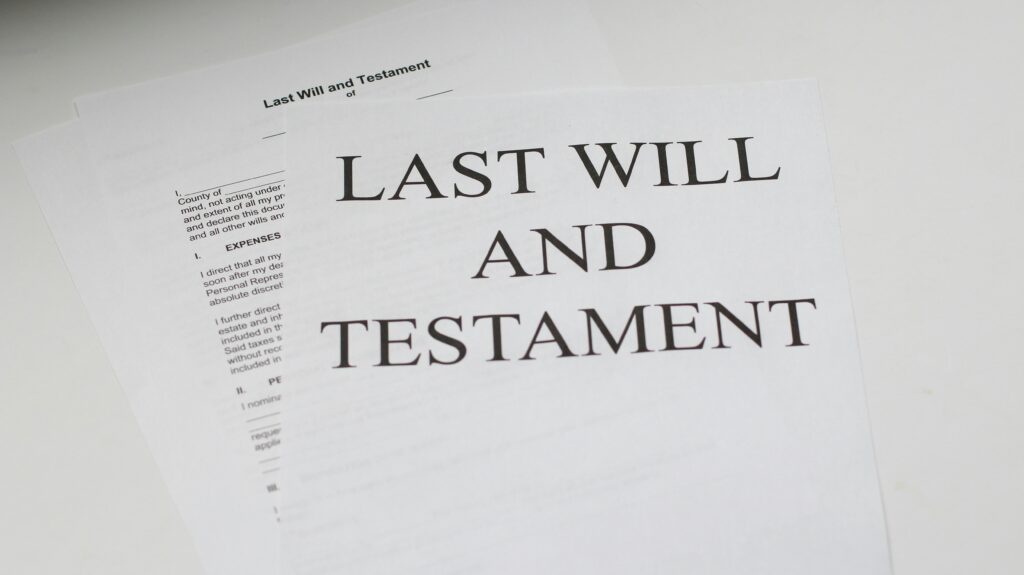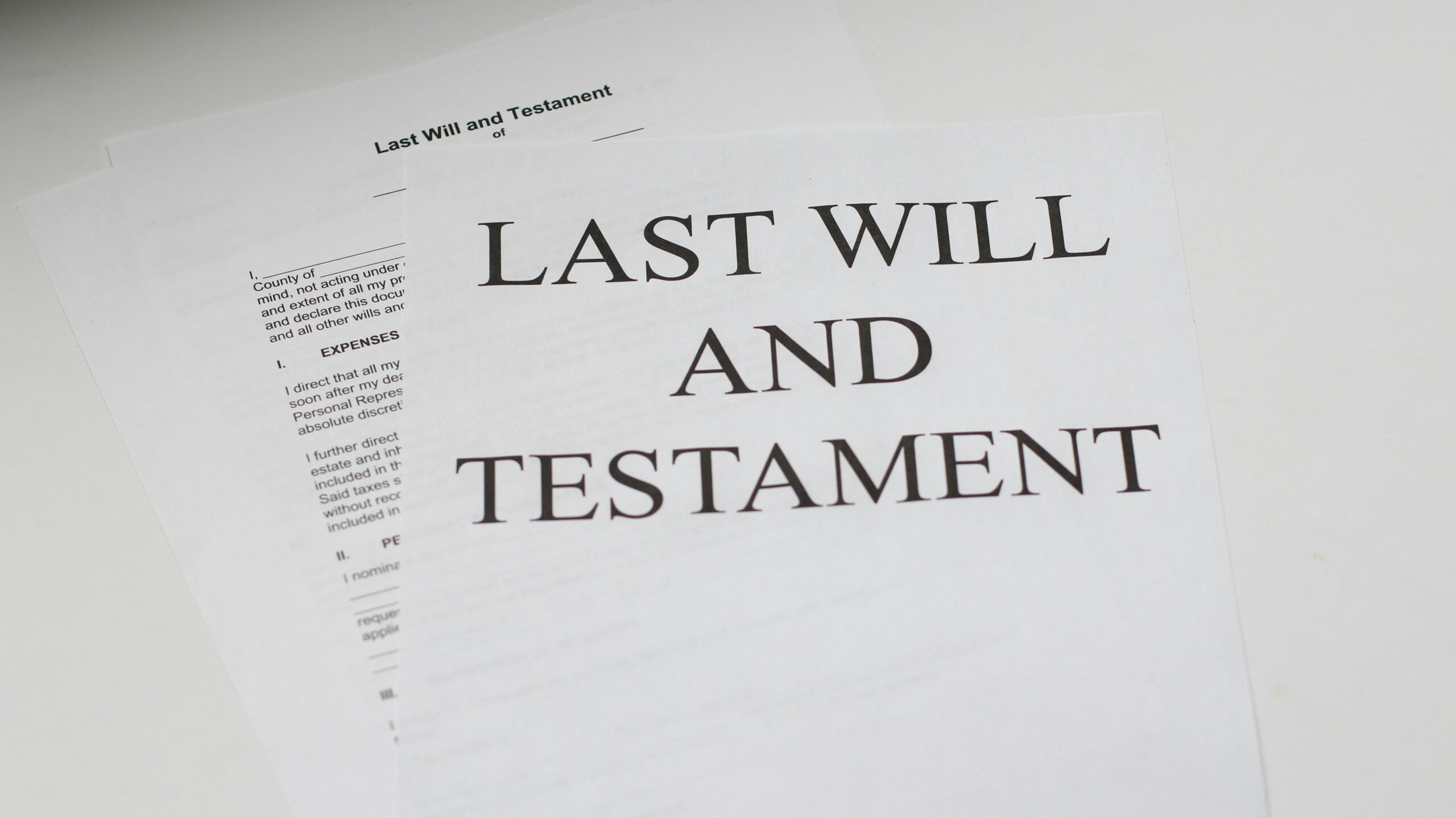
A will is more than just a piece of paper—it’s a crucial legal document that ensures your wishes are carried out after your passing. It provides clear instructions on how your property, finances, and personal possessions should be distributed, preventing confusion and reducing family disputes.
Without a valid will, your estate is considered “intestate,” meaning the state decides who inherits your assets. That means your assets can go to someone you really don’t like, whilst those you love get nothing. This can lead to lengthy legal battles, unnecessary stress for your loved ones, and outcomes that may not match your wishes. For myself I have found that a will gives me peace of mind knowing my assets go to my loved ones.
With that in mind I have created an easy to read mini guide covering all the basics to get you started in at least thinking about a will.
Why Everyone Needs a Will
- Clarity & Control: You decide who gets what. And just as important who gets nothing.
- Protection for Family: Prevents disputes and uncertainty which is the last thing anybody needs at such an emotionally distraught time.
- Guardianship of Children: If you have had children later in life who is going to look after them when you are gone. This especially important if they are vunerable. Who do you trust to act in their best interests. And are they willing to do it.
- Avoids Intestacy: Without a will, the law decides distribution. Once again that can be someone you really don’t like, whilst loved ones get nothing.
The Number One Common Misconception
“Wills are only for the wealthy.” → False. Everyone, regardless of assets, benefits from having a will. Many people don’t realise how much they are worth. And they don’t appreciate the potential financial implications for loved ones on their passing.
Components of a Well-Crafted Will
- Identification: State who you are and your intentions.
- Beneficiaries: Name who will receive your assets.
- Assets: Include property, bank accounts, heirlooms, and personal items.
- Executors: Trusted individuals who will carry out your wishes.
- Special Provisions: Funeral wishes, trusts, gifts for children, etc.
- Clear Language: Avoid legal jargon to reduce misinterpretation.
Will Preparation Checklist
Step 1: Decide What You Want to Happen
- List all assets (property, bank accounts, savings, personal items).
- Write down who you want to inherit what
- Include charities or special gifts.
Step 2: Choose the Right People
- Executor(s): The person who carries out your will (pays debts, distributes assets, handles legal paperwork). Choose someone trustworthy, organized, and reliable.
- Guardian(s) (if you have children under 18): Person who will care for your children. Pick someone whose values match yours and who can provide a stable, loving home. You also need to talk to them about it to ensure they are willing to do it. Don’t assume they will.
- Witnesses: Adults who see you sign your will. Must not be beneficiaries.
- Trustees (if your will includes a trust): Manage assets for beneficiaries. Should be responsible, reliable, and able to follow your instructions.
💡 Tip: Have backups for executors or guardians to ensure your wishes are carried out if your first choice is unavailable.
Step 3: Write Your Will Clearly
- I was going to create a list of things for writing your own will, which is simple if you know what you are doing. But, it is also very easy to do something or omit to do something that can make the will invalid. In which case, you don’t have a will, as it’s legally unenforceable. The way I see it, just go to step 4, you need to ask their advice anyway.
Step 4: Get Professional Help
- Find a qualified professional specializing in wills and estate planning.
- Ensure they explain things clearly in plain English.
- Confirm fees upfront.
- Keep your will safe and inform your executor where it is.
Where to Get Professional Help (English-Speaking Countries)
United Kingdom
- Solicitors specialising in wills and probate – Law Society of England & Wales
- STEP (Society of Trust and Estate Practitioners) – important if your estate involves trusts, business assets, or complex family situations. Many UK solicitors hold STEP qualifications, demonstrating advanced expertise and credibility.
- Charities like Will Aid and Free Wills Month provide low-cost services. From my understanding although they may be free there is the hope you leave the charity something in your will.
💡 TIP: For complex estates or trusts, choose a STEP-qualified solicitor or professional to ensure your will is professionally structured and legally robust. Also bear in mind any advice they give is based on what you tell them about your situation. Leaving things out is not a good idea as it can affect the validity of the advice.
United States
- Estate Planning Attorneys – licensed lawyers specializing in wills, trusts, and probate.
- National Academy of Elder Law Attorneys (NAELA) – experts in estate and elder law.
- Legal aid clinics or senior centers may offer free or low-cost assistance.
Canada
- Wills and Estates Lawyers – search via the Canadian Bar Association directory.
- Notaries public (in provinces like Quebec and BC) can prepare valid wills.
- Community legal clinics and senior legal aid services may help.
Australia
- Solicitors specialising in wills and estates – search via your state or territory Law Society.
- Public Trustee offices offer low-cost or free wills, especially for seniors.
- Private estate planning lawyers recommended for complex estates.
Maintaining and Updating Your Will
- Review your will every 3–5 years or after major life changes.
- Update after marriage, divorce, new children, or significant asset changes.
- Be aware of changes in laws or tax rules that could affect your estate.
- Treat your will as a living document to ensure your wishes are always current.
Final thought:
I think whatever your circumstances, taking the time out to create and keep your will up to date is a simple but powerful way to protect your legacy—and the people you love most. Who wants them to go through all the unnecessary stress, expense, and confusion that comes as result of not having one. Not me!
Disclaimer:
I am not a legal or financial expert. This post is based on research I have done and is meant to share general information that I thought could be useful. Everyone’s situation is different, so it’s important to speak with a qualified professional—such as a solicitor, attorney, or estate planning advisor—before making any decisions about your will or estate planning.
